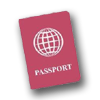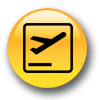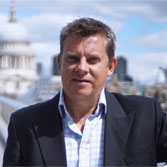Sierra Leone; home to the Bounty Bar beach, charming locals, and an odd airport transfer...

A beautiful and deserted beach in Sierra Leone. Photo My Bathroom Wall
I visited Sierra Leone in 2009 in order to write an article about what the place was like after the country had spent years known abroad only for its horrendous civil war. I was bowled over by the place and its people and plan to return. The country is has been declared free from Ebola since November 2016.
The following is a version of the piece that appeared in the Sunday Times in 2009.
***
"Would you like to be carried to the speedboat or do you prefer to wade?" is not a question I've had to face before on an airport transfer - but this is Sierra Leone, one of the world's poorest countries, and there's no bridge from the international airport to the capital city.
So, glancing down at my leather shoes, and looking along the beach at two local businessmen in suits, ties and the arms of local fishermen, I opted for a carry-out, too.

One of the most bonkers airport transfers I've ever taken. Photo My Bathroom Wall
There are other ways to get from the airport, but they are a lot less appealing than a 30-minute skim in a speedboat: a tediously slow ferry that leaves only when jam-packed; an unreliable former Isle of Wight hovercraft; and the most dangerous, an airline that uses former Russian military helicopters.
You may think these matters ridiculously beside the point, considering that I'm talking about Sierra Leone, a country famed for boy soldiers, blood diamonds and precious little else. The locals, though, will quickly point out that the war finished in 2002, that there were free and fair elections, and a peaceful transition of power 18 months ago, and that a tourism boom must be just around the corner. And perhaps that's not as crazy as it might sound.
The prewar fundamentals are still here: fabulous beaches and reliable winter sun, plus mountains and monkeys, slave forts, unspoilt islands and colourful markets. And getting to Freetown is easy, with nonstop BMI flights from Heathrow that take seven hours, only 30 minutes longer than those to The Gambia. There's no jet lag, everyone speaks English and even the three-pin plugs are the same.
Just 14 miles south of the capital, on the magnificent powder-white, if prosaically named, River No 2 Beach, the tourist potential is glaring. It faces west and spans miles of undeveloped bay, backed by palms and lush jagged hills, and is bisected by the green water of River No 2 on its sidewind to the sea.
Of all the beaches in all the world, this was the one chosen to feature in the old 'A Taste of Paradise' adverts for the Bounty Bar. In truth the beach plays second fiddle to swimming costumed models taking slo-mo mouthfuls of the chocolate bars, but the beach looks alluring too.

My chalet facing No 2 Beach brought back the best of backpacking memories. Photo My Bathroom Wall
I was the only guest at the one development on the entire beach: a community project where the whole village chips in to run seven beachside chalets. For £34 per night you get a large room with a big veranda, B&B - they are concrete and tiles, but have batik wall hangings, a clean bathroom (no hot running water, though) and a comfy double bed with a big mosquito net.
After a day walking along the beach, swimming in the sea, talking to the fishermen, eating a fine fish dinner for a fiver and taking a boat trip to a rock pool by a waterfall, I flicked on my iPod and watched the sunset from my veranda.

Keep it simple simple; the good life at No 2 Beach. Photo My Bathroom Wall
I'd backpacked a lot in the 1980s and 1990s, and being here kindled powerful memories of my first forays to Thailand and Bali, Fiji and Goa. It's not what I had expected of Sierra Leone, but there I was nonetheless, rediscovering the potency of a sunset seen from a beach hut, wafted by the subtle scents of sea spray and hibiscus, with towel and togs drying on a line, cold beer in hand.

Fishermen bringing home the catch to No 2 Beach. Photo My Bathroom Wall
But this place still has a way to go. For example, some of the roads in Sierra Leone are shocking - Freetown's tarmac hardly reaches the city limits on the main road south to the beaches, which turns an 11-mile drive into an infuriating hour's slog. There are good paved stretches further down the peninsula, but the lack of infrastructure is a big brake on tourist development.

Busy market scene along the road to Banana Island. Photo My Bathroom Wall
It hasn't stopped the locals preparing for an influx, though. Take Tommy, the bare-chested, 40-year-old owner of the Hard Rock Restaurant at nearby Lakka Beach. When I asked him about his place, he said: "I started to build this during the war, in 1997. It took me eight years - slowly, slowly. Before the war there were 500 French people here every week, but after the war it is quiet. I hope new tourists will come soon, though."

I looked both ways along the beach. There wasn't a single tourist in sight. I asked what he would suggest for lunch, and glancing over his shoulder towards the fishing boats, he said: "I have some nice barracuda."
Moments later, a young guy dashed down the sand and rushed back with a big fish. Cooked as a kebab, with rice and a mildly spicy onion and tomato garnish, it was delicious.
The next day, on a boat heading to Banana Island from the tiny hamlet of Kent, a greying young man in a green and white African-style suit asked: "Excuse me, may I ask what nature of endeavour brings you to my country?"
He was David Jones, the Kent head teacher, and his was typical of the omnipresent courtesy of Sierra Leoneans.
Everyone passes with a "Good morning, how are you today?", or in the local Krio language, a "How de day?" or "How de bodi?".
There were a lot of how de bodis lobbed my way on the short walk from Dublin Wharf - basically two large cotton trees and a couple of canoes - to the eight rondavels of the island's guesthouse. It's another community project, this time with more thoughtfully decorated huts, hot water, lighting provided by solar panels, and fantastic views back onto the mountains and beaches of the mainland.

The arrival and departure hub for Banana Island, Dublin Wharf. Photo My Bathroom Wall
I walked around the tip of the island with Michael, a local lad who showed me the overgrown foundations of a Portuguese fort and the village well (still in use). He couldn't remember when the Portuguese were here, so he took me to his uncle, the venerable Lord Moo. I sat on a bench on the tidy patio of his titchy house and waited for the old man to emerge from tending his cassava plants.

The affable and wise Lord Moo. Photo My Bathroom Wall
Hobbling over, he sat heavily and reclined next to me. With a wonderfully resonant voice, he told me that during the American war of independence, the British had promised to free any slaves who joined them in the fight, and how 50,000 of them had done so, some of whom were subsequently liberated and shipped to Freetown. "That is why we have so many British names for villages - Waterloo, Wellington, Hastings, Wilberforce - it is gratitude from the slaves who came here as free men."
Lord Moo didn't like Freetown. "People in the city," he said, pointing up to a big, green bunch of bananas in his tree, "they can't leave anything to ripen. Those bananas are not ripe. They will be perfect in maybe three more days, but in Freetown they are taken to market too early, to exchange for money. That is how people in the city live. They cannot wait for anything."

View from in front of my rondavel at the Banana Island Guest House. Photo My Bathroom Wall
On my last night in Sierra Leone, I stood at the bar of Freetown's best nightclub, Paddy's. I looked out to sea and thought about Lord Moo and his garden.
I couldn't agree with him about Freetown, which for my money is the prettiest town on the West African coast - good beaches, fine old colonial buildings and the mountaintop suburb of Hill Station, sprinkled with wonderful old stilted bungalows. Of course it's ramshackle, with terrible traffic and some grinding poverty, but if you like West Africa it's friendly and feels quite safe.
In fact, it's been a while since I last got so attached to a place so quickly. When it came to leaving, I checked out of my hotel with big handshakes all round, vowing to return. Then, in shorts and sandals, I waded out to sea and into the waiting speedboat for my trip back to the airport.

Sunset on Banana Island. Photo My Bathroom Wall
I travelled as a guest of Rainbow Tours.
 |
Reasons to be cheerful: there is now a more reliable link between Freetown's Lungi Airport and the city, though the journey still involves a bus and boat journey, via Sea Coach Express. The 30 minutes on the 'ferry' can be bumpy, but if you do suffer from seasickness, the road journey from the airport to the city can take four hours, so you may want to take your chances on the boat. It's strongly advised that airport transfers are booked in advance of travel too. UK based tour operators Rainbow Tours and Undiscovered Destinations both offer tailor made tours to Sierra Leone. Or Overlanding West Africa and Dragoman run overland trips through the country. |
 |
Always check your government's travel advice before booking, and check that your travel insurance is valid in this country. See here for the British Foreign and Commonwealth Office advice. |
 |
Getting there: there are direct flights to Freetown from Paris with Air France, Brussels with Air Brussels and Amsterdam with KLM. Other routes include Royal Air Maroc from Casablanca, Kenya Airways from Nairobi and Accra, and Air Côte d’Ivoire from Abidjan and Monrovia. |





